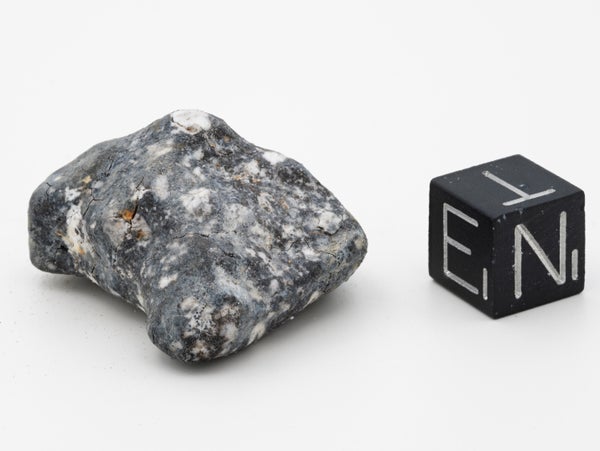February 16, 2024
3 min read
Fragments from Asteroid 2024 BX1 have proven to be a rare meteorite type that helps reveal the early solar system’s building blocks
A fragment of the Asteroid 2024 BX1 recovered in Germany is a rare class called Aubrite.
Fragments of an asteroid that exploded over Germany on Jan. 21 and were recovered five days later have been confirmed to be a rare space rock type that could help shed light on Earth’s origins.
As Space.com initially reported on Feb. 1, scientists suspected that the strange appearance of the meteorite fragments from the parent asteroid 2024 BX1 indicated they were part of a rare group called aubrites. These suspicions have now been confirmed.
SETI Institute meteor astronomer Peter Jenniskens was part of the team that found several of the meteorites. He told Space.com that prior to this, only 11 examples of aubrite meteorite falls had been found on Earth. The incredibly rare samples are from a family believed to represent just 1% of known meteorites.
On supporting science journalism
If you’re enjoying this article, consider supporting our award-winning journalism by subscribing. By purchasing a subscription you are helping to ensure the future of impactful stories about the discoveries and ideas shaping our world today.
The aubrite meteorites from 2024 BX1 differ from other meteorites because they have a translucent glass crust rather than a thick crust of black glass, and they have a grey granite appearance. This made them initially difficult to differentiate from standard Earth rocks.
But Jenniskens and collaborators at the Museum für Naturkunde in Berlin performed the first examinations of one of these meteorite pieces with an electron beam microprobe, determining they have the typical mineralogy and chemical composition of aubrite type rocks.
“The interesting thing about this fall is, we have a very nice orbit of it, and so the shape of the orbit itself contains clues as to where the source region…
Read the full article here







